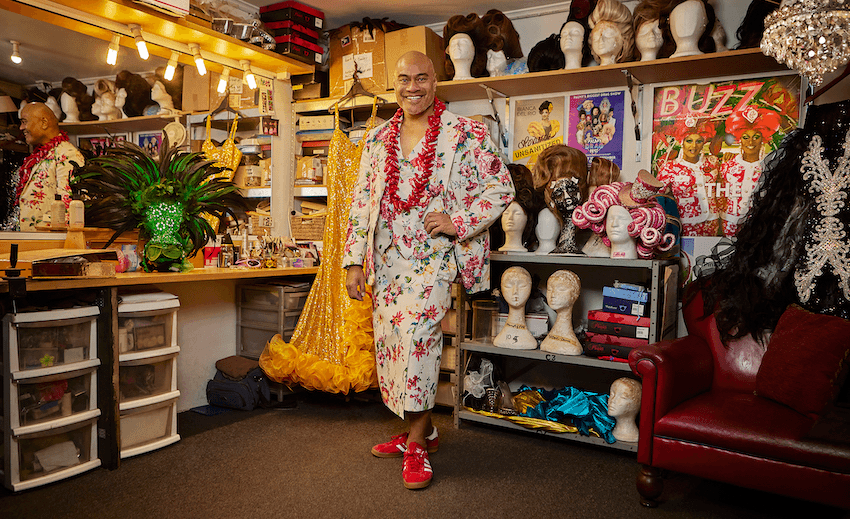As part of our series exploring how New Zealanders live and our relationship with money, a contractor explains how she went from living beyond her means in her 20s to being a dedicated saver in her 40s, with the help of finance podcasts and blogs.
Want to be part of The Cost of Being? Fill out the questionnaire here.
Gender: Female.
Age: 46.
Ethnicity: Pākehā.
Role: Contractor doing admin/ops/events, including some voluntary work.
Salary/income/assets: Total household (two full-time workers) is about $200,000 p.a. House with mortgage remaining, but should be paid in 2-3 years (total time to pay off the mortgage will be around 20 years). Emergency fund of $26,000 in case I have gaps in contract work. Combined KiwiSaver of $450,000 (even I’m astonished by this, but we’ve been in it from the start paying in above 3%, and in high growth funds).
My living location is: Suburban.
Rent/mortgage per week: $1000 on the mortgage. We try to pay off more when we can – we just want to get the thing gone.
Student loan or other debt payments per week: None. Student loan was paid off in our early 30s. We stopped all other consumer debt in our late 30s when I started to learn more about personal finance. We now save for everything or go without. (I acknowledge we have above average incomes to be able to do this.)
Typical weekly food costs
Groceries: $350 (for three people).
Eating out: $100 (three people, once a week).
Takeaways: $60 (three people, once a week).
Workday lunches: Once a week – $15.
Cafe coffees/snacks: None, I try to avoid buying coffee now. I used to be a two-flat-white-a-day person until I calculated how much I spent on coffee in a year.
Other food costs: None.
Savings: None at the moment, except for emergency fund and KiwiSaver, as we’re focussed on getting the mortgage paid off. We have sinking funds for things like car and house maintenance and travel, so I guess this is short-term savings?
I worry about money: Sometimes.
Three words to describe my financial situation: Focussed, values-driven, comfortable.
My biggest edible indulgence would be: Duck Island ice cream (any flavour thanks).
In a typical week my alcohol expenditure would be: $0.
In a typical week my transport expenditure would be: $60 on petrol, $20 public transport for entire household.
I estimate in the past year the ballpark amount I spent on my personal clothing (including sleepwear and underwear) was: Maybe $1000 – I try to buy secondhand and I avoid fast fashion (because I can afford to).
My most expensive clothing in the past year was: $350 for a brand new dress (from a sustainable, ethical fashion label).
My last pair of shoes cost: $200 for some HOKAs on sale so I can get outdoor on the trails a bit more.
My grooming/beauty expenditure in a year is about: Annually about $1200, which is mostly made up of 4x per year hairdresser appointments. I tried to do it myself during lockdowns and it was a disaster, so I’m happy to invest in this. I am pretty mid-range for everything else (Trilogy products, use minimal makeup).
My exercise expenditure in a year is about: OK this is where I prioritise spending. I’d spend about $3,000 p.a. across memberships/events, hiking equipment and trips.
My last Friday night cost: $0.
Most regrettable purchase in the last 12 months was: I don’t really buy much stuff, usually it’s just to replace things which is annoying more than regrettable.
Most indulgent purchase (that I don’t regret) in the last 12 months was: Merino underwear for hiking – expensive but game changing!
One area where I’m a bit of a tightwad is: I prefer “considered” as opposed to tightwad :) Probably takeaways and eating out, we definitely do a lot less than we used to – now I feel like it has to be a special occasion or treat.
Five words to describe my financial personality would be: Reformed spender who needs guardrails.
I grew up in a house where money was: Not talked about. Mum did the finances and I think was quite onto it. They had very ordinary, average income jobs, and I never had a sense of going without. Back in the 80s and 90s, we hardly ever went out and she often made our clothes. Trips overseas were only to Australia every 3-4 years. But we got to do all the school and extra curricular activities we wanted.
The last time my Eftpos card was declined was: Over a decade ago. It happened all the time in my 20s. I was a spender, lived beyond my means, racked up credit cards.
In five years, in financial terms, I see myself: Doing more for the community.
Describe your financial low: Basically my entire 20s was a car crash financially. I only really learned about personal finance in my late 30s, and wish I had the knowledge earlier. Compound interest really is the eighth wonder of the world. Grateful to all the podcasts and blogs so readily available now.
I would love to have more money for: Paying off the mortgage, cutting down to part-time paid work to do more voluntary work, and giving away to charities.
I give money away to: Kaupapa Māori charities and environmental orgs focussed on the ocean/coast.



